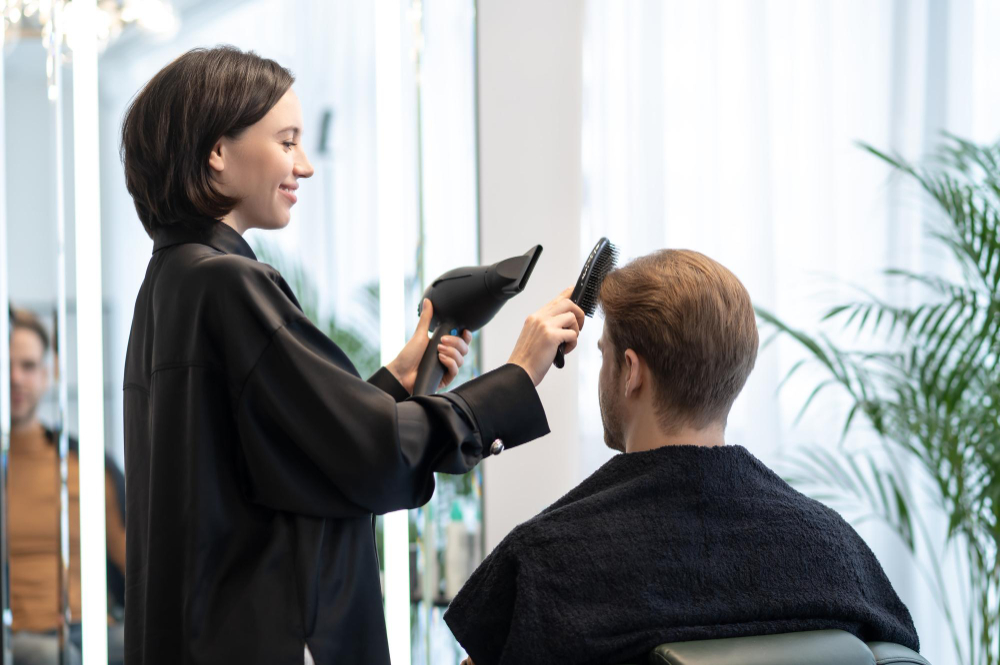Hair loss is a typical worry for some individuals, and it can fundamentally affect confidence and certainty. While it’s a characteristic piece of the maturing system, there are different ways of forestalling and overseeing balding. In this exhaustive aid, we will investigate the reasons for balding, counteraction systems, and successful administration strategies to assist you with keeping a full, solid head of hair.
Understanding Hair Loss

Before diving into prevention and management, it’s crucial to understand the different types and causes of hair loss:
- Androgenetic Alopecia (Male and Female Pattern Baldness): This is the most well-known reason for balding and is essentially hereditary. It brings about the progressive diminishing of hair and, now and again, sparseness.
- Telogen Effluvium: Going bald is much of the time set off by huge pressure, ailment, medical procedure, or hormonal changes. It causes hair to become thin all over the scalp.
- Alopecia Areata: An autoimmune disorder that leads to hair loss in small, round patches.
- Traction Alopecia: Hair loss caused by pulling the hair too tightly in hairstyles like braids or ponytails.
- Scarring Alopecia: Hair loss due to scarring of the scalp from injuries or skin conditions.
Prevention Strategies
While some types of hair loss are genetic or related to medical conditions, there are several preventive strategies to maintain hair health:
- Balanced Diet: A nutritious diet that includes protein, vitamins, and minerals like biotin and zinc can promote hair health.
- Scalp Care: Keep your scalp clean and healthy by washing it regularly and using a mild, pH-balanced shampoo.
- Gentle Hair Care: Avoid harsh hair treatments, excessive heat styling, and tight hairstyles that stress the hair shaft.
- Stress Management: Chronic stress can contribute to hair loss. Practice pressure decreases methods like reflection, yoga, or profound relaxation.
- Regular Exercise: Physical activity improves blood circulation, which benefits the scalp and hair follicles.
- Adequate Hydration: Drink enough water to maintain proper hair health and prevent hair from becoming brittle.
- Avoid Smoking and Excessive Alcohol: These habits can affect hair health negatively. Quitting or reducing them can be beneficial.
- Scalp Massages: Gentle scalp massages can stimulate blood flow to the hair follicles, promoting hair growth.
Management Techniques
For those already experiencing hair loss, various management techniques can help:
- Medications: FDA-approved medications like minoxidil and finasteride can slow hair loss and promote hair regrowth.
- Platelet-Rich Plasma (PRP) Therapy: This treatment involves injecting your blood platelets into the scalp to stimulate hair follicles.
- Low-Level Laser Therapy (LLLT): LLLT devices, such as laser caps, stimulate hair growth through low-level laser diodes.
- Hair Transplants: Surgical procedures like follicular unit transplantation (FUT) and follicular unit extraction (FUE) can restore hair to thinning or bald areas.
- Camouflage Products: Concealers and hair fibers can create the illusion of thicker hair.
- Wigs and Hairpieces: These options provide immediate coverage for hair loss and come in various styles.
- Lifestyle Adjustments: Managing stress, getting enough sleep, and maintaining a healthy lifestyle can slow down hair loss.
- Cosmetic Camouflage: Some individuals choose to embrace their hair loss and opt for a clean-shaven look or a shorter haircut.
Seeking Professional Help

If you are concerned about hair loss, counseling a medical care professional or dermatologist is fitting. They can give a complete assessment of your condition, suggest reasonable medicines, and proposition direction on the best way to deal with forestalling and overseeing going bald.
Conclusion
Hair loss can be an upsetting encounter, yet there are different methodologies to really forestall and oversee it. From keeping a solid way of life to looking for proficient direction, the choices for keeping up with sound hair are various. Recollect that the sooner you address the issue, the better the possibilities of fruitful anticipation and the board. No matter what the reason, you can find proactive ways to keep up with healthy hair and lift your certainty.


